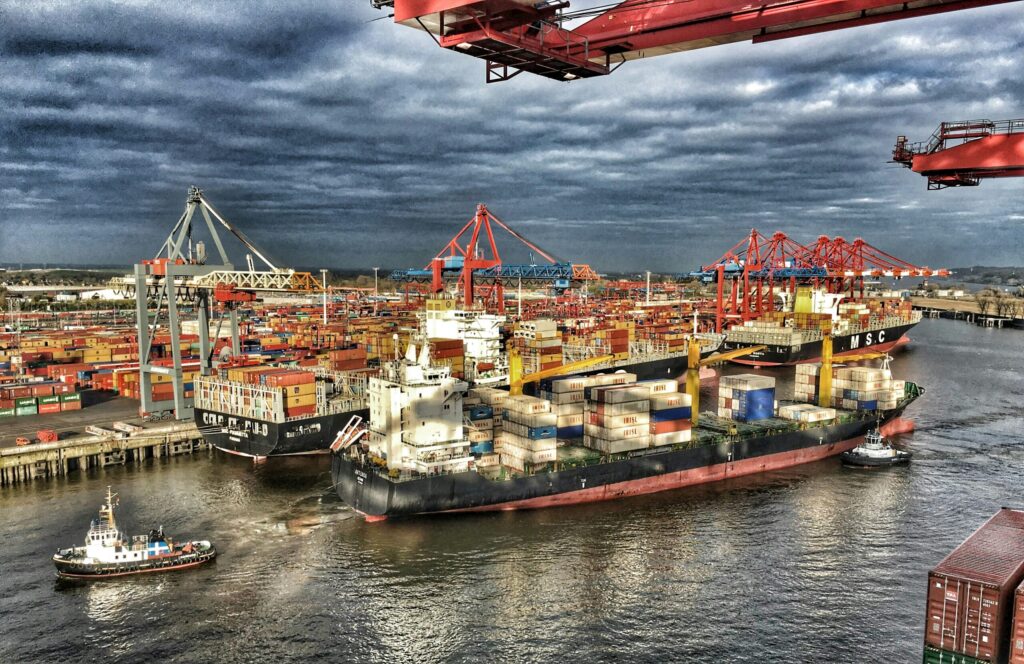Global trade infrastructure experiences profound evolution as private investment is central to financing and managing essential transportation assets. This transition represents a fundamental development in international commerce, with private capital flowing into port facilities, logistics networks, and trade infrastructure at historic levels. The consequences extend beyond basic funding arrangements, transforming international goods movement and national competitive positioning in global markets.
Private Operators Transform Port Efficiency
Private capital’s impact appears most prominently in global port operations. Most high-volume ports operate through combined public-private models rather than exclusively government management. Private enterprises typically oversee daily cargo handling and logistics operationseven within government-owned facilities, creating hybrid structures leveraging private sector expertise while maintaining public oversight.
This transformation produces quantifiable benefits. Private operators invest in technology, automation, and sustainability initiatives, improving operational efficiency. These include automation, AI-powered cranes, self-operating vehicles, and digital processing systems, which reduce congestion and fundamentally transform cargo movement through these essential trade facilities.
Recent performance metrics confirm this approach’s effectiveness. In 2024, the twenty largest ports processed combined traffic of 414.6 million TEUs, representing 7.1% growth compared to the previous yeardemonstrating private sector participation benefits in port operations.
Complex Legal Frameworks Demand Specialized Expertise
Increased private infrastructure investment creates complex legal challenges requiring advanced structuring and compliance frameworks. Cross-border infrastructure transactions involve multiple jurisdictions, regulatory requirements, and investment protection mechanisms demanding specialized legal knowledge. These deals frequently incorporate sophisticated financing arrangements, including combined funding structures integrating public and private capital sources.
International project financing becomes especially challenging when structuring transactions across diverse regulatory environments. Issues spanning foreign investment screening, environmental compliance, labor regulations, and tax optimization require careful management.
Engaging a private equity lawyer becomes essential for infrastructure investments when establishing operations in major financial centers. The regulatory environment continues to rapidly change. Under proposed regulations, specific sectors, including critical raw materials and transportation infrastructure, will undergo mandatory foreign direct investment screening by Member States, creating additional complexity for infrastructure investments requiring sophisticated legal guidance.
Technology Integration Drives Competitive Advantage
Private capital contributes beyond financial resources to infrastructure development. Port automation advances rapidly, responding to efficiency and safety requirements. Automated Guided Vehicles, robotic lifting equipment, and automated stacking systems are becoming increasingly standard, minimizing human error and optimizing cargo processing times, demonstrating how private capital enables technological implementation.
Digital transformation extends beyond mechanical automation. Artificial intelligence enhances operational performance and decision processes in port logistics. AI applications, including predictive analysis and intelligent automation, enable facilities to optimize cargo management and throughput, reducing operational expenses and increasing profitability, establishing sustainable competitive advantages for private operators.
Energy Transition Creating New Investment Opportunities
The global shift toward renewable energy and decarbonization is creating substantial infrastructure investment needs that private capital is positioned to address. Progress towards Net Zero greenhouse gas emissions is providing impetus for realization of reserves and capital, with infrastructure services agreements becoming increasingly important. This trend is particularly evident in LNG terminals, renewable energy facilities, and green shipping infrastructure.
Germany alone requires 600 billion euros over 10 years to move forward on infrastructure modernization, with economy ministers calling for 90 percent private sector participation in these investments. This massive funding requirement illustrates the scale of opportunity available to private investors willing to support energy transition infrastructure.
Geopolitical Implications and Strategic Considerations
Private ownership of trade infrastructure has created new geopolitical dynamics that governments and investors must carefully navigate. Beijing’s approach to port investments resembles early U.S. maritime strategy, where control over ports and sea lanes became core elements of national maritime strategy. This strategic dimension means infrastructure investments often have implications beyond pure commercial returns.
The concentration of logistics capabilities in private hands also creates vulnerabilities and dependencies that nations must consider. PRC companies dominate logistics software often used at ports, and with virtually all the world’s seaborne goods passing through or near Chinese infrastructure, Beijing could easily leverage the information it accesses to selectively seize critical goods or divert military components. These strategic considerations influence investment decisions and regulatory approaches across major economies.
Digital Infrastructure Driving New Investment Flows
The expansion of artificial intelligence has generated infrastructure constraints that private investment is rapidly addressing. Data center investments driven by AI and cloud computing requirements have been particularly robust, with a record $50 billion directed to the sector in 2024increase from $11 billion in 2020. This substantial growth reflects the fundamental transformation in global trade operations, with digital logistics platforms becoming equally essential as physical infrastructure.
In the United States, electricity demand is projected to increase 5-7 times over the next three to five years, creating structural opportunities for private investors in electricity generation and distribution projects. This digital transformation extends beyond computing facilities to encompass the entire trade ecosystem, including automated port facilities, intelligent logistics systems, and integrated supply chain platforms.
Endnote
Private investment has substantially transformed global trade infrastructure, generating new efficiencies while introducing distinct risks and interdependencies. Investment volume continues expanding as institutional investors pursue stable returns and governments require private funding to address extensive infrastructure requirements. Success in this environment demands an advanced understanding of intricate legal structures, geopolitical factors, and rapidly developing technological needs.

